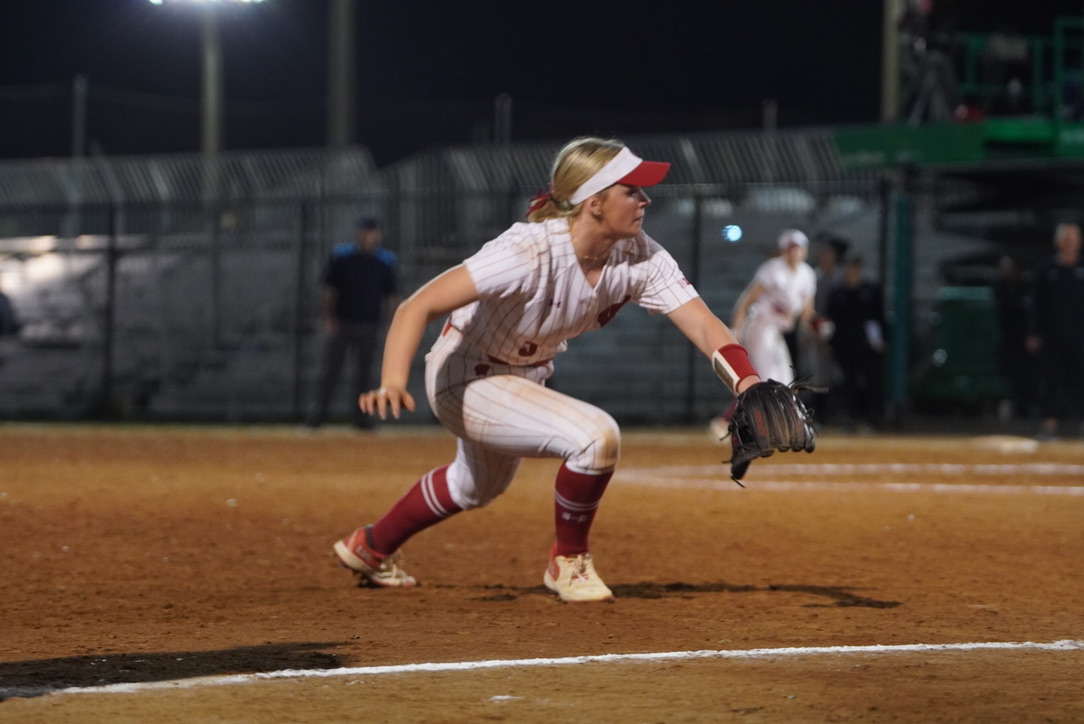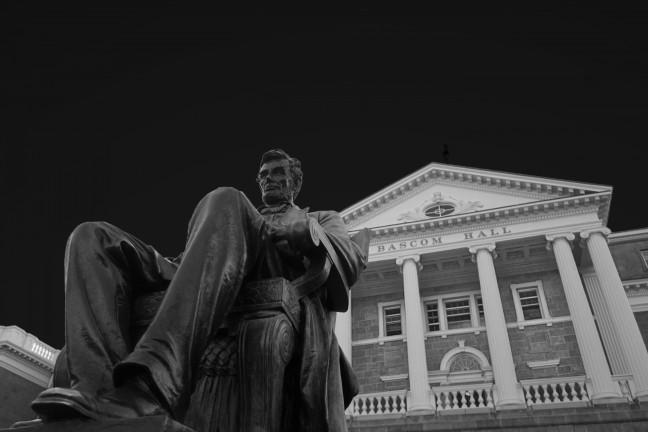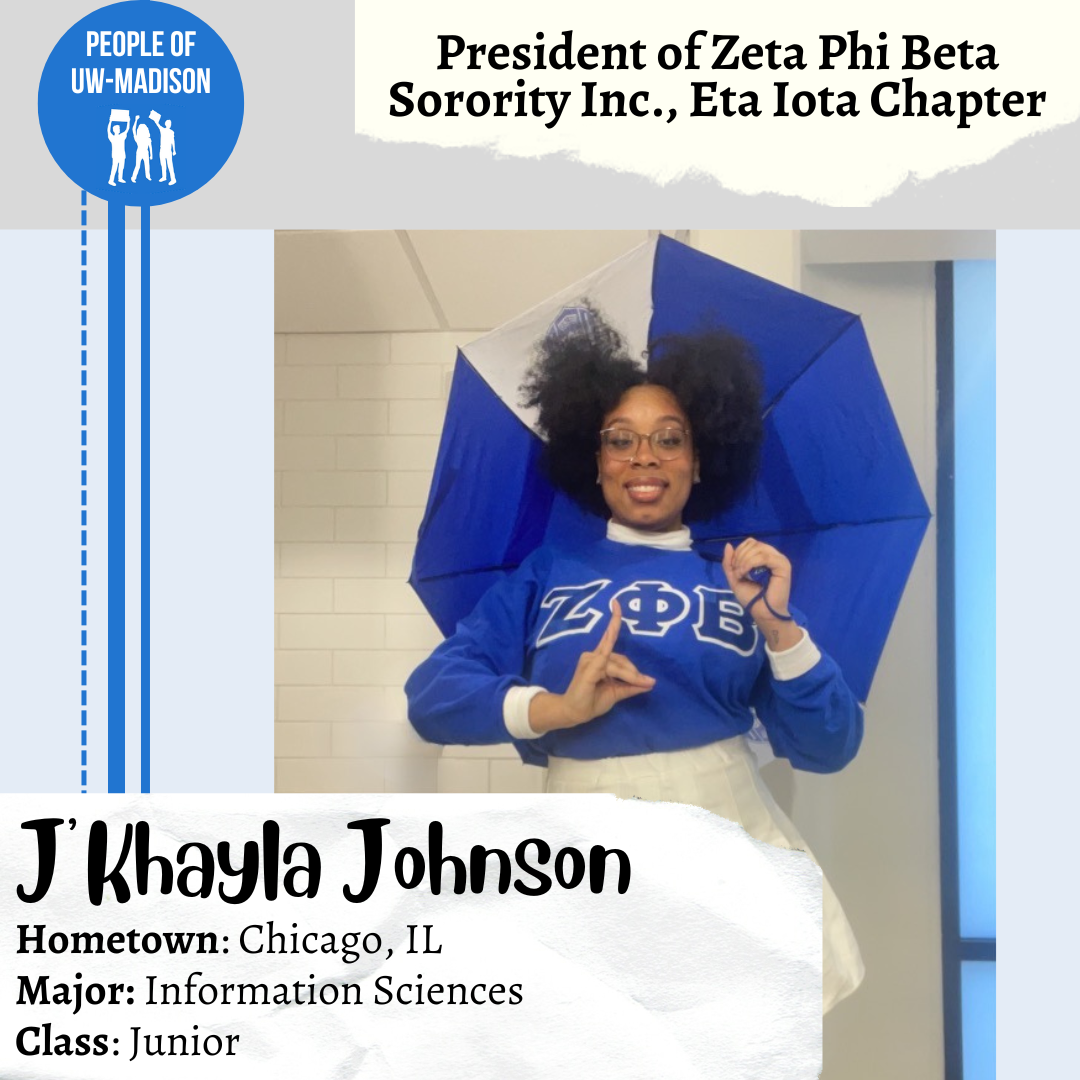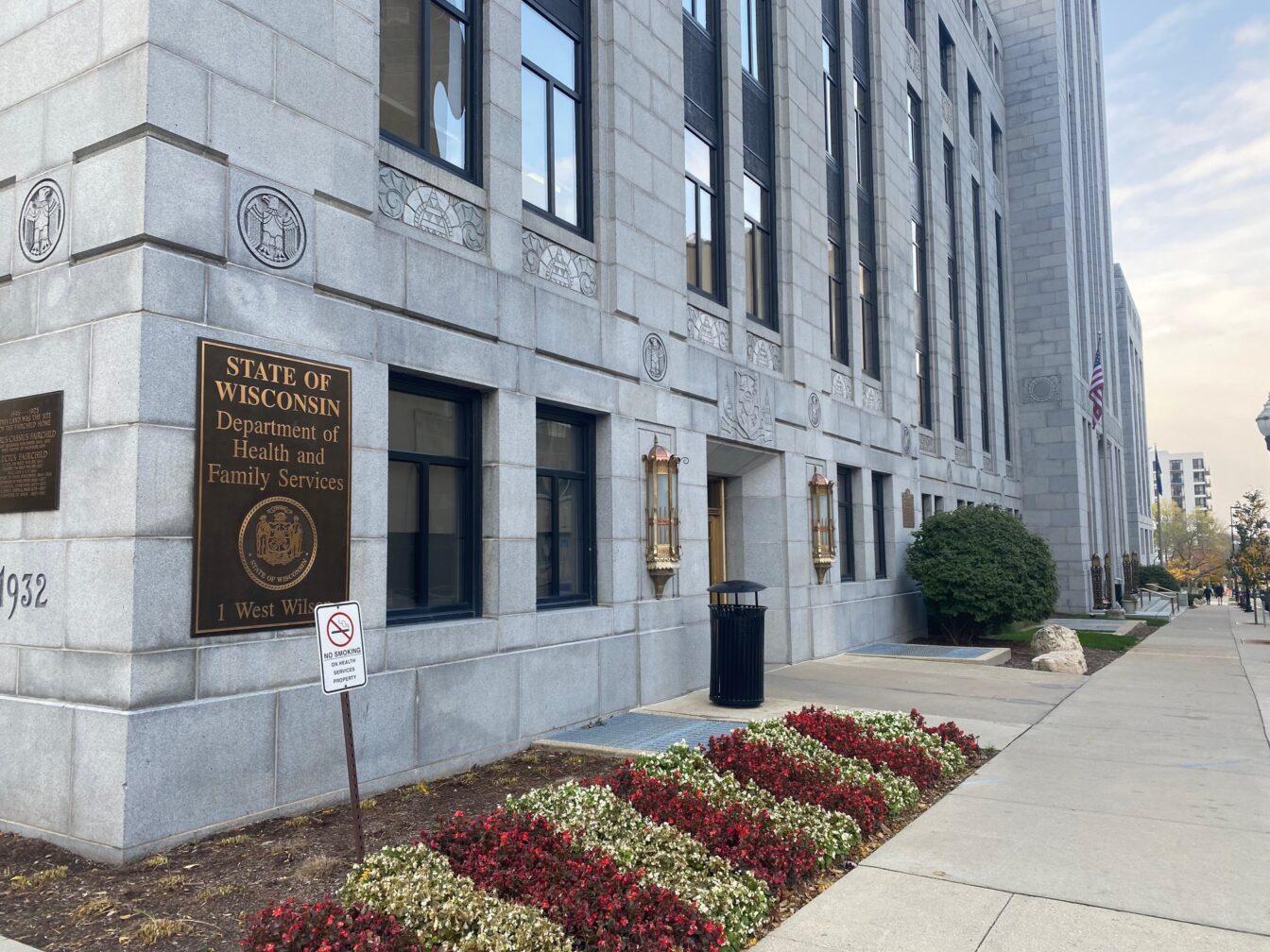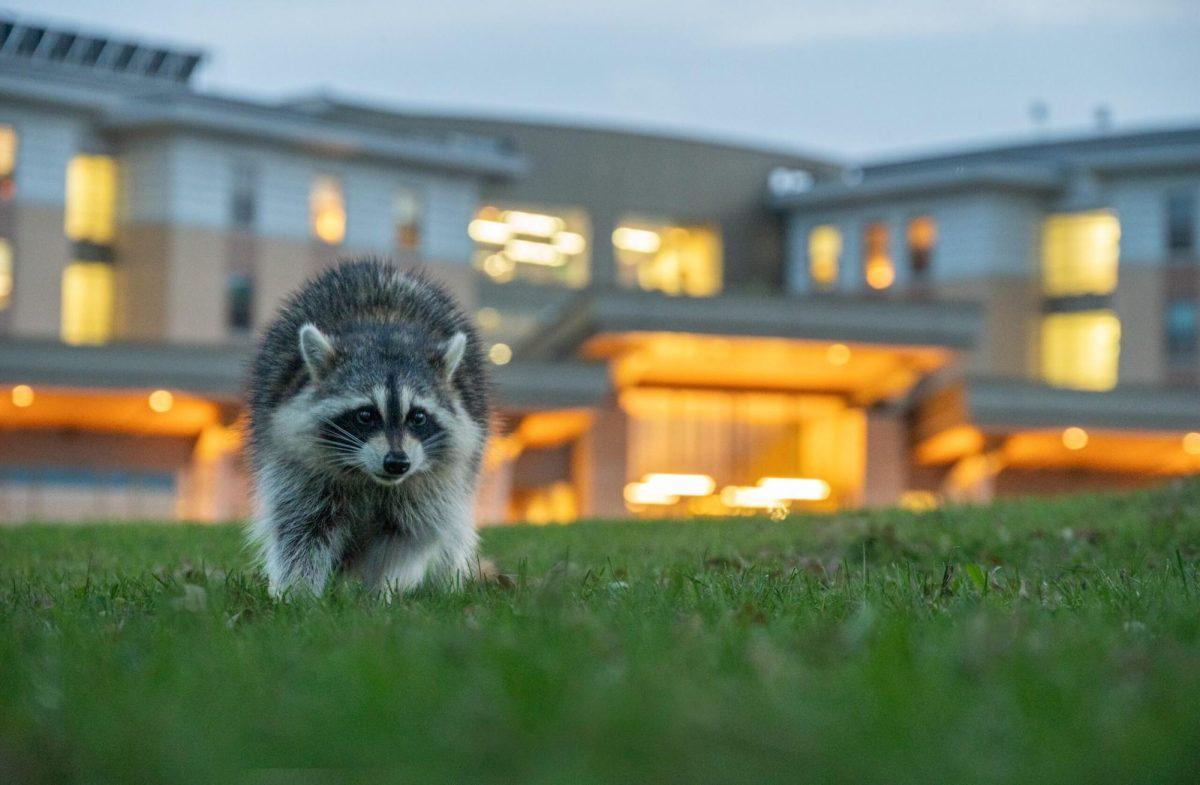Launa Owens, a 19-year-old black freshman at University of Wisconsin, woke up slightly late for class Thursday morning in her third floor Sellery Hall dorm room.
Her tardiness was the least of her problems that morning — placed underneath her door was a crumpled sheet of white paper containing damning racial epithets in burnt-orange letters, along with four tally-marks, one of which was exed out, signaling a potential threat to her life.
The note, Owens said, may have been motivated by a photo she posted on social media, which featured her and three friends standing in front of Gordon Commons with a banner displaying “#TheRealUW.” Owens said she and her friends were spreading awareness for an April 29 #TheRealUW event, which will feature discussion on issues of race and diversity on campus.
Owens, who grew up in Milwaukee, said she has felt threatened before, but did not expect the same from seemingly liberal Madison and the UW campus community. At the same time, she was not completely surprised.
Students in classes and at her place of work have questioned whether she deserves to be at UW, claiming she only has a scholarship because she is black. In one instance last semester on Langdon Street, people called her various racial slurs while throwing glass bottles at her.
“Madison is supposed to be all liberal, and definitely not like where I grew up, but now I have my heightened senses back again,” Owens said. “I look behind my back now, and triple check my door is locked, and walk a little faster at night.”
UW Chief Diversity Officer Patrick Sims lashed out at the still unknown perpetrator behind the note Owens received in a video.
He encouraged students to speak up about incidents of racism they see on campus because “no letter from the provost, the chancellor or the vice provost for diversity is going to stop this from happening.”
“This is not the forward-thinking institution that I thought it was,” Sims said in the video.
Owens’ is not an isolated case. Stories of hate and bias like hers are increasingly being reported to UW administration, and are also being publicized on social media via #TheRealUW. Dozens of students have come forward with their stories, all in an effort to reveal the UW that lies beneath its progressive veneer.

Administration responds to #TheRealUW
In response to these incidents, UW administration has expressed deep disappointment, but did not hasten any concrete policy initiatives until Chancellor Rebecca Blank’s March 15 open letter to students.
Blank wrote the cases of hate and bias on campus were “completely unacceptable.”
Her open letter called for a pilot program on cultural competency, hiring more staff for student support counseling at University Health Services and funding students to visit other Big Ten schools and their campus cultural centers.
The university will hold an informational session about how to report hate and bias incidents April 7.
Blank also called for co-generated proposals for change from student groups. She said in the letter she has committed funding to test and scale promising proposals.
Dean of Students Lori Berquam said administration will appoint a committee, which will include students, to read through each proposal.
Berquam said the cultural competency program, which is still in the designing process, will focus on the idea that students are joining a new community when they arrive at UW. Because students come to UW from all over the world, Berquam said the program will cover how to talk about being in a new community and how students can respect each other while developing a sense of self.
“We want our students to be culturally competent,” Berquam said. “The experiences many students are sharing are their voices and they’re painful to learn about and even more painful for students to have experienced.”
Several experts, however, contend that cultural competency programs are not proven to be effective.
Karma Chavez, a UW communications professor, is one of them.
“The chancellor said they’re going to do that because it’s low-hanging fruit,” Chavez said. “It doesn’t require a lot of effort.”
She said programs addressing cultural competency are not proven to work, and student activists were misguided in demanding that type of program from administration.
Markus Brauer, a UW social psychologist, agreed, adding that research has left few definitive answers on cultural competency programs.
“I don’t know a lot of research that shows that they’re effective,” Brauer said. “Most of these types of training sessions have not been evaluated. It’s just been done, and then there is some indirect evidence that it should have a positive effect.”
Rather than attempting to address racism in specific individuals, Chavez said an approach that focuses on structural issues would be more effective because individual instances of racism cannot be cured.
One example of a more effective campus effort would be to address the university’s ethnic studies programs, whose faculty are far more knowledgeable on topics of hate and bias, Chavez said. But the programs are underfunded and lack focus on racial power dynamics and sufficient funding, she said.
“It’s embarrassing for the university to devalue ethnic studies so much — not the ethnic studies requirement, but ethnic studies as a discipline that studies race, ethnicity, indigeneity and power,” Chavez said.
Student responses to administration
Kenneth Cole, founder of the UW Black Out Movement and a member of Blind Side, said he is glad Blank is addressing incidents of hate and bias at UW, but he believes her initiatives are long overdue.
Cole said administration should have been more proactive in taking action on issues of hate and bias at UW.
Alyssa Daniels, a 20-year-old biracial junior, said Blank’s open letter seemed like nothing new compared to what she has written in the past.
“I feel like it’s kind of superficial at this point,” Daniels said. “Every letter feels the same to me and I feel like nothing changes.”
But many students such as Cole agree UW administration should create a cultural competency training program to educate students who didn’t grow up in diverse areas.
Social media and #TheRealUW
Berquam said while #TheRealUW on social media “allows students to use their voice in elevating their experience,” she feels students online misconstrue administration’s efforts.
When a Jewish student in Sellery found an anti-Semitic flyer posted on his door, Berquam said administration responded efficiently.
UW officials respond to swastika ‘bias incident’ in campus dorm
“It was something we believed had been appropriately responded to, yet when it hit social media, there was no context,” Berquam said. “When there’s no context, people will fill in the blank.”
She said Sellery residents, along with students at Hillel and Chabad House, were the first groups notified of the incident because they were the community “directly affected.”
Berquam hopes the April 7 informational session on hate and bias reporting will help both students and administration get a better understanding of the extent of the reporting process.
“What we want to commit to is to be transparent as possible,” Berquam said. “The more people know about the hate and bias reporting, the more we will learn about the hate bias on our campus. It helps us get a total picture.”
A segregated campus
Some students believe there is not only a divide between majority and minority students, but also between different marginalized groups.
Lauren Gonitzke, a 21-year-old Asian-American junior, said part of the problem of race relations at UW is that minority groups often only associate with those who have the same ethnic make-up as them.
“This campus is the most racially segregated place I’ve ever seen,” Gonitzke said.
Like Daniels, Gonitzke feels after her three years on campus, administration has not changed in terms of discrimination issues on campus.
“There’s been a fever pitch of racial issues coming to attention and nothing comes of it,” Gonitzke said.

A mutual effort toward change
Several students said it is ultimately up to the individual to change any ignorant views they may have about a certain race or population, but that administration should help educate students about different cultures.
Cole said students of color are often the ones educating others on campus.
“The biggest issue is students are tired of being teachers, where we have to learn and teach counterparts what is and isn’t acceptable as far as race relations go,” Cole said. “It’s not our job, and we don’t have time for that.”
“The biggest issue is students are tired of being teachers, where we have to learn and teach counterparts what is and isn’t acceptable as far as race relations go. It’s not our job, and we don’t have time for that.”
Berquam said all students must be willing to engage in creating change.
While the university has behavioral expectations for its students, students must ultimately take responsibility for their actions, she said.
“It should be a commitment by all of us to engage in discussions that may not be comfortable,” Berquam said.
Andre Hunter Jr., president of the class of 2017, said the student body has as much responsibility for solving UW’s diversity problem as administration does.
“It’s not just the UW administration — we can also fix these issues ourselves,” Hunter said. “If you’re being apathetic toward the issue, you’re really just helping the oppressor.”
He said students should direct their efforts toward electing those from diverse backgrounds to student government. These students, he said, are the ones who will choose to fund multicultural student organizations whose mission is to educate fellow students on multiculturalism.
But another principle — individual accountability — is key in making it clear that hate and bias are not welcome on campus, he said.
“It’s our job to look out for one another to make sure that when issues like this happen, people understand there are consequences,” Hunter said. “There is no room for [hate and bias] in the 21st century, and no room for that at UW-Madison.”






